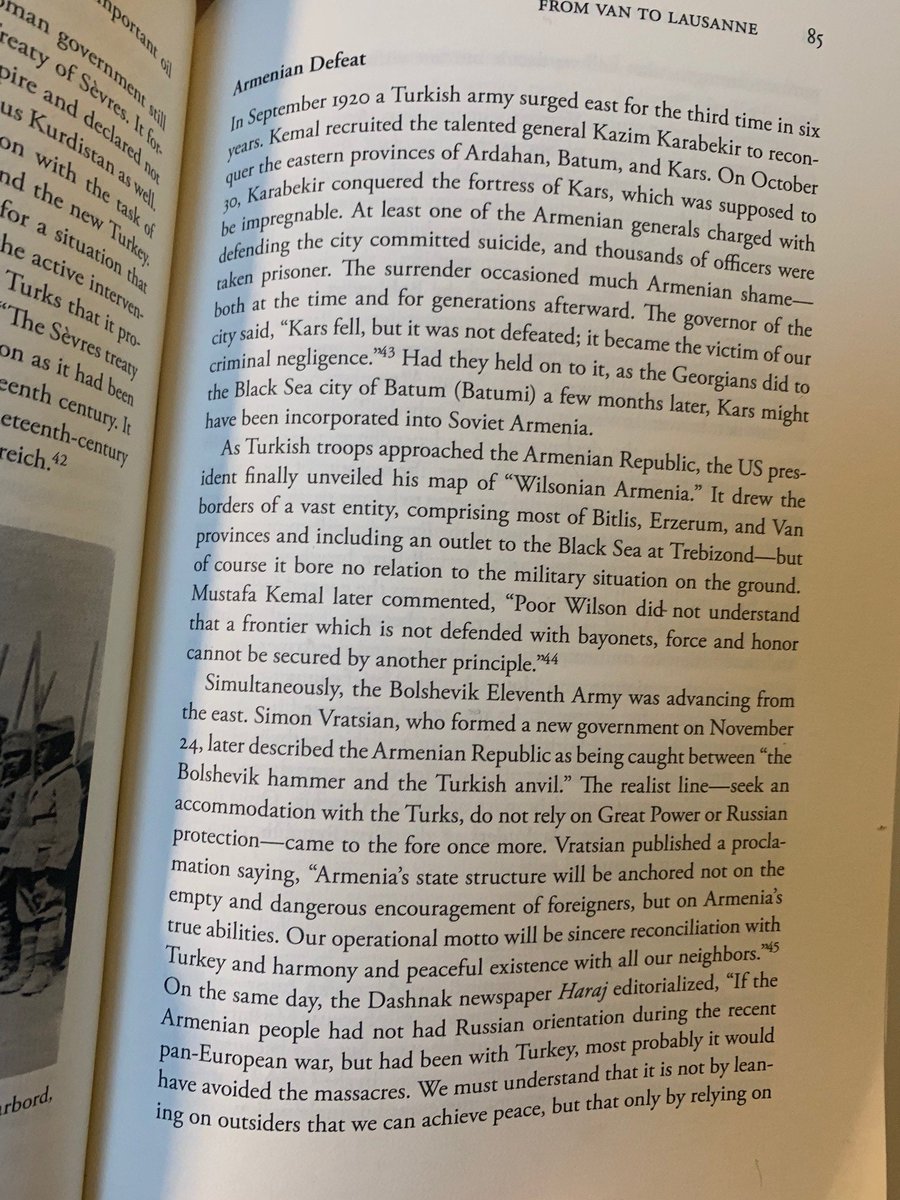1 Today is the 100th anniversary of December 2nd 1920, the day that marked the end of the independent 1st Republic of Armenia when its last government handed over power to the invading Bolshevik 11th Army. There are some interesting parallels between Armenia in 1920 and 2020...
2 In 1920 the republic's PM Simon Vratsian had been in power for just a week. He said Armenia was caught between “the Bolshevik hammer and the Turkish anvil.” It was facing defeat from a Turkish military advance, had just lost the cities of Kars and Alexandropol (Gyumri).
3 Western powers “merely talked about her fate.” See this passage from Firuz Kazemzadeh’s book. There were furious debates between Armenian maximalists, who claimed historic lands under the Treaty of Sevres + rejected compromise, and realists trying to accommodate with Turkey.
4 Vratsian was a realist. Here he is quoted in my book Great Catastrophe: “Armenia’s state structure will be anchored not on the empty and dangerous encouragement of foreigners, but on Armenia’s true abilities.” (The whole page tells the story of the autumn of 1920.)
5 So the Russians came in. The Bolsheviks took over Armenia, overthrew the 1st Republic. Then Moscow signed Treaty of Kars with Turkey. Much was given up. It was a bitter outcome for Armenians--but many felt relief that they were saved from destruction by the Turks. Read here.
6 Many important differences between 1920 and now of course! Armenia is a sovereign state, it's not in ruins. Its losses in the recent war were hard, but far smaller than in 1920, let alone 1915. The new deal means strong new Russian influence, not a full Russian takeover.
7 And of course this was a war in and around Karabakh, not Armenia. Azerbaijan was the main combatant in 2020, not Turkey. Armenians may call Azerbaijanis "Turks" but their history with the two nations is very different. Azerbaijanis did not play a part in the 1915 Genocide.
8 But there are parallels—Armenian over-reach arguably led to disaster, misplaced hopes of Western support, a Russian intervention to keep out Turkey. And some of the debates will be similar. Some will say, “We just got our tactics wrong, we were unlucky. We were betrayed.”
9 Others will argue, “We lived with hostile neighbours, we got our whole strategy wrong, we need to rethink and work hard to put our own house in order.” As they say, “History Does Not Repeat Itself, But It Rhymes.” ENDS

 Read on Twitter
Read on Twitter




